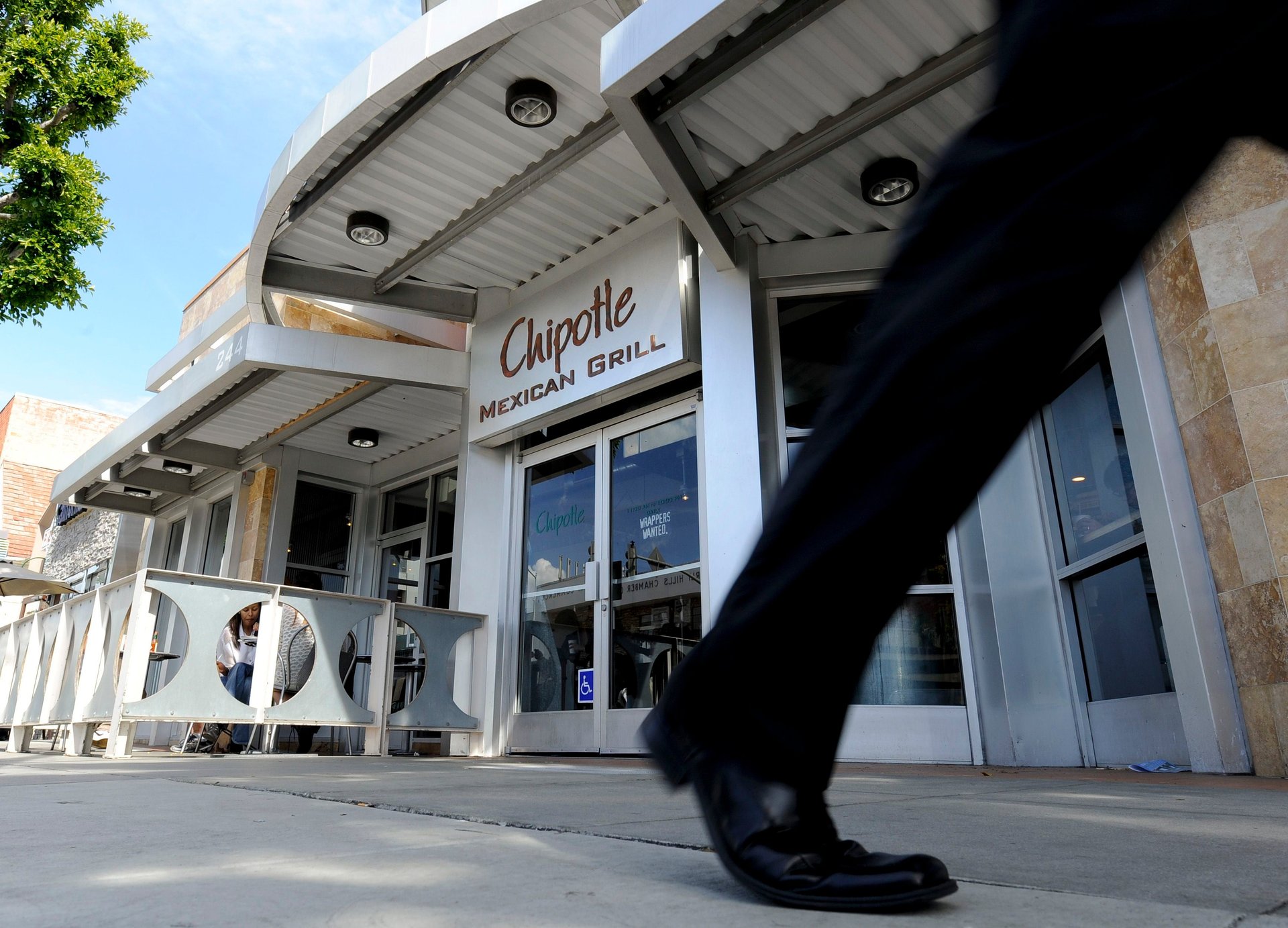Chipotle braces for more sick people from its E. coli outbreak
The popular “fast-casual” chain Chipotle closed 43 of its restaurants in Washington state and Oregon this weekend, after nearly two dozen people who ate at its restaurants became sick with E. coli infections. Health officials expect more sick people to come forward today as awareness of the outbreak spreads.


The popular “fast-casual” chain Chipotle closed 43 of its restaurants in Washington state and Oregon this weekend, after nearly two dozen people who ate at its restaurants became sick with E. coli infections. Health officials expect more sick people to come forward today as awareness of the outbreak spreads.
Neither the source nor the extent of the food poisoning has been determined. It’s possible that a batch of ingredients supplied to Chipotle restaurants in Washington and Oregon was contaminated by E. coli, but local health officials investigating the outbreak say they don’t yet know for sure. Chipotle was not immediately available for comment.
“I’ve never gotten sick like this,” one man told Portland news station KATU. “The excruciating pain in my abdomen was something I’ve never experienced. It feels like your guts are being ripped out.”
E. coli bacteria is ubiquitous but only certain strains tend to make people sick. While Chipotle famously does not use meat from livestock that have been treated with antibiotics, that’s not necessarily a factor in the outbreak. In fact, many E. coli outbreaks are the result of contaminations that occur in processing, and have nothing to do with how individual animals were raised.
So far, 22 cases of E. coli poisoning have been reported—three in Oregon and 19 in Washington—and eight patients have been hospitalized. Epidemiologists investigating in Washington state are urging residents to seek medical help if think they may have become sick from eating at a Chipotle restaurant within the past three weeks. Oregon officials were slightly more specific, asking people “who have eaten at a Chipotle between October 14 and 23 and become ill… to see their health care provider and mention this outbreak.”
In total 43 Chipotle restaurants were voluntarily closed—including all of the chain’s locations in Washington and several in metropolitan Portland, Oregon—and will remain shuttered until more is known about the outbreak.
Previously, about 100 people at a single California Chipotle outlet were sickened in August, in an outbreak that was eventually traced back to a norovirus, which can cause severe gastrointestinal distress and other symptoms. The same month, the company traced an outbreak of salmonella that sickened more than 40 people to a batch of tainted tomatoes.